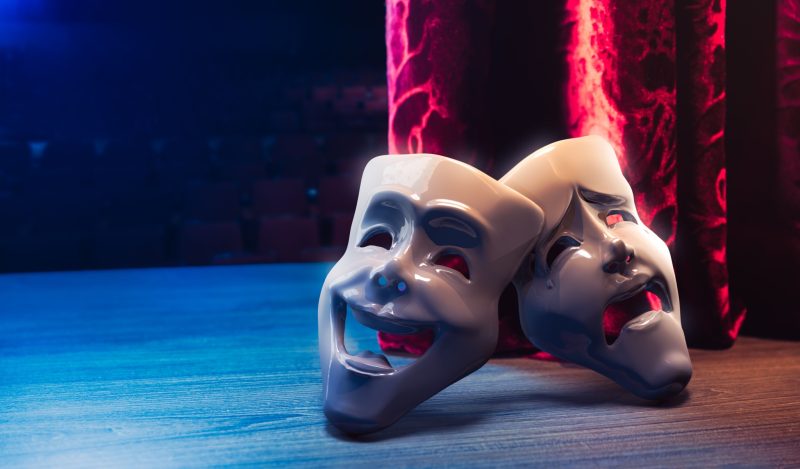A few weeks ago, we woke to various bloviating regarding last night’s first presidential debate. Depending on which side you hold, your preferred candidate won. They may have had a disappointing performance, but the other candidate is a liar. One of them has a convicted felon for a son, and another is even a convicted felon himself! This time though, in addition to the normal bloviating, there are several key differences in the debate series, and one thing that is missing entirely.
Public debates between candidates were not a common occurrence. Wendell Willkie was the first presidential contender to challenge his opponent to a face-to-face debate in 1940. His opponent, Franklin Delano Roosevelt, simply refused to participate. It wasn’t until the first-ever televised presidential debate occurred between John F. Kennedy and Richard Nixon in 1960 that the idea of face-to-face debates became a common thing. Even after that televised debate, there wasn’t another one until the 1976 presidential election between Jimmy Carter and the incumbent Gerald Ford.
Ford was in a weak position. He was only president because of the Watergate scandal and the resulting resignation of Richard Nixon. In order to appear strong, he challenged Carter to the televised debates. Since that time, televised presidential debates have remained a tradition. Usually, there are two or three presidential debates and a single vice presidential debate per election cycle.
The presidential debates were originally sponsored by the League of Women Voters, but by 1987 the Commission on Presidential Debates was formed by the chairmen of both the Democratic and Republican Parties.
This year, neither candidate agreed to a debate sponsored by the Commission on Presidential Debates. The Republican National Committee withdrew its participation in 2022, citing concerns over biased moderators and the debates being too late in the election cycle to encourage early voting. The Biden campaign withdrew citing the timeline of early voting and the commission being unwilling to enforce rules in 2020. In other words, the campaigns both withdrew due to non-substantial differences related to early voting and biased moderators.
Third-party candidates like Robert F. Kennedy, Jr. face arbitrarily high restrictions on their participation. In the event a third-party candidate ever exceeds those thresholds, the thresholds are all but guaranteed to change in order to prevent that candidate’s participation. Alternatively, the two main party candidates could refuse to participate in the debates like Jimmy Carter did in 1980 due to the presence of independent candidate John B. Anderson.
The result this year is the earliest presidential debate in the history of the series. Neither of the two major candidates has officially been confirmed as nominees by either of their parties’ National Conventions. The Republican Convention is to be held next month, in July, in Milwaukee, and the Democratic Convention will be held even later in August, in Chicago.
The second of the two agreed-upon Presidential Debates is scheduled after the conventions in September. Had the debates been sponsored by the Commission on Presidential Debates, the debates would have occurred in September and October. That would have allowed the parties to complete their individual nomination processes, and the last debate to occur roughly a month prior to the presidential election.
Holding the debates prior to a party’s official nomination raises an interesting scenario, particularly in the Democratic Party’s case. Their incumbent candidate is clearly struggling with old age and declining mental capacity; meanwhile, the nomination process consists of an interesting mix of pledged, unpledged, and superdelegates.
There is no rule mandating that any of the delegates — even the pledged ones — vote for the candidate to which they are pledged. There is only a section stating that delegates shall act in good conscience to reflect the sentiments of those who elected them. If, at the time of the convention, the sentiment of the democratic electorate is that which is expressed on CNN this morning — Biden’s debate performance sets off alarm bells for Democrats — what exactly are the Democratic delegates bound to? Would they select a surprise candidate at their convention?
My overall sense is that, no, they would not. The expanded vote-by-mail and early voting procedures implemented in the aftermath of the Pandemic are all still in place. In 2020, the official record is that Biden won the most votes received by any presidential candidate in United States History: 81,283,501. That is 7 million more than Donald Trump won in 2020 and more than 10 million more than Barack Obama won in 2008, the top three respectively. Remember that in 2020, Biden largely did not campaign, allegedly due to the ongoing Covid Pandemic.
In the wake of the 2020 election, remember too, that the military occupied the nation’s capital for months. The inauguration was held in a city encamped by troops, with barricades and barbed wire erected everywhere. Twenty-five thousand troops were deployed to the city. At the time, only 5,000 were stationed in Iraq and Afghanistan. By March 2020, 2,300 National Guard members remained in the city with plans to stay for two more months.
It seems interesting that the most popular candidate in US History would need this level of protection for his inauguration. Even after seven states seceded, Lincoln — whose election split a divided country — did not even need that level of security for his first inauguration. I use this example because, during the Civil War, the troops didn’t show up in Washington until a year after Lincoln’s election, and the Washington Post wrote an article comparing the two epochs.
Nonetheless, the knives appear to be out for Joe Biden. Opinion seems almost universal that Joe Biden performed badly. This is particularly noticeable on sites like MSNBC and CNN. It is to be expected on sites like Fox.
Maybe it is the start of an underdog story: The working-class boy from Scranton, PA fights back in the second debate, riding high from his recent, electric speech at the Democratic National Convention. Tongue-firmly-in-cheek, maybe he’ll steal a quote from a Chris Farley movie: He makes car parts for the American working man because that’s what he is, and that’s who he cares about.
Anyhow, the candidates both seemed to enjoy sparring over which one of them was the worst president in the history of the country, or who had the worst golf game. Neither candidate seemed to think they could hold both positions simultaneously.
Paraphrasing Orwell:
[We are] fiddling while Rome is burning, and, unlike the enormous majority of people who do this, fiddling with [our] face toward the flames.
George Orwell, Inside the Whale and Other Essays.
Interestingly, there is one word that didn’t make it into any of the questions or responses. It is not to be found at all in the transcript. It is largely the underlying cause of all the social, economic, and political issues that we face today. That word — which shall remain un-named in mainstream political discourse — is of course — Lockdown.
Republished from the author’s Substack
Join the conversation:


Published under a Creative Commons Attribution 4.0 International License
For reprints, please set the canonical link back to the original Brownstone Institute Article and Author.









